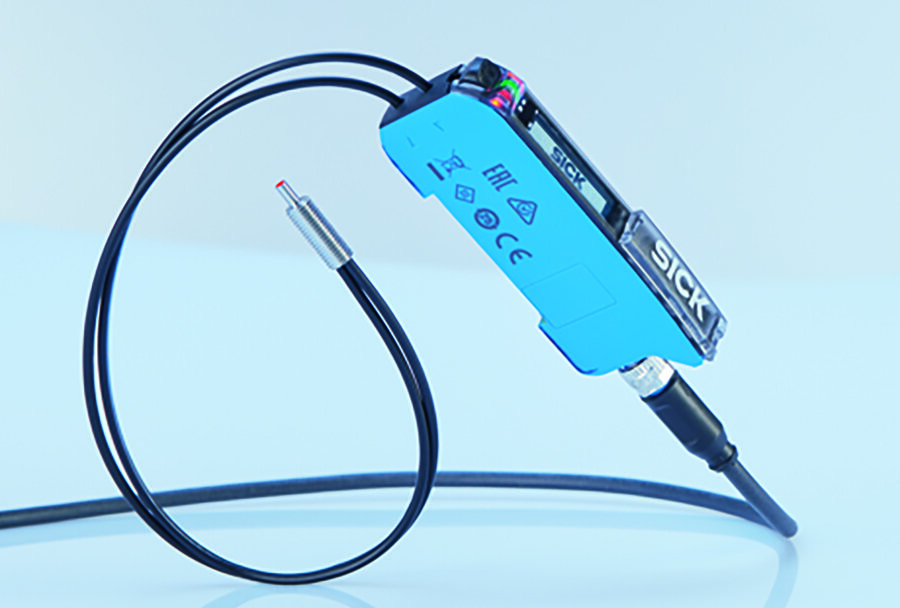SICK has launched its next generation, intelligent and powerful WLL80 Fibre Optic Sensors, designed for easy configuration and highly-versatile integration into machinery and conveyor systems wherever rapid, high accuracy detection is required in confined spaces.
The SICK WLL80 fibre optic amplifier can be teamed with SICK’s new LLX portfolio of state-of-the-art fibres. Any length of flexible LLX fibres up to 20m can be specified alongside a versatile range of sensor heads. With IO-Link communication as standard, the WLL80 enables easy integration, reduces cabling, and ensures efficient and responsive machine control.
Easy to set up and adjust
The SICK WLL80’s user-friendly OLED pushbutton display makes setting or adjusting application parameters quick and easy. Set up over IO-Link is also straightforward, enabling sensor data to be output in real time for diagnostics and troubleshooting, as well as rapid replacement. By using Smart Tasks for pre-defined parameter configurations, reliable detection of fast-moving, small or transparent objects is assured, as well as precise detection of leading edges.
The SICK WLL80 is therefore ideal for reliable detection duties in tight spaces, such as detecting the leading edges of printed circuit boards, detecting and counting rapidly falling small metal components or pharmaceutical products, or performing presence detection duties on small robot grippers.
The SICK WLL80 achieves very high detection rates with rapid response times. Repeatability is assured thanks to the WLL80’s continuous threshold adaption (CTA) function, which enables the sensor to stay operational for extended time periods without intervention while adapting the signal strength, e.g. in a dusty environment, or because of contamination build-up on the fibre heads.

The WLL80’s intuitive pushbutton OLED display enables the fibre optic amplifier to set up easily to adapt to conditions on-site. Users can also use SICK’s free SOPAS software engineering tool for parameterisation and to optimise the signal strength.
Versatile Integration
By being able to switch between PNP, NPN or push-pull outputs on the same device, users need only one type of Sick WLL80 fibre optic amplifier for all machine controls, reducing inventory. The WLL80 is compatible with common bus protocols and its internal logic also enables several sensors to be networked together, without the risk of interference. SICK WLL80 sensors can be organised in banks in a master-slave configuration to enable automatic cloning of parameter settings for multiple devices.
The SICK LLX range of fibres achieves new levels of configurability. The SICK LLX offers 500 different fibre types and a wide range of threaded and smooth-sleeve heads, with both axial and radial head alignment available. The SICK fibre optic sensor range offers highly versatile application options for problem-free length adjustment at an excellent price/performance.
For more information please contact Andrea Hornby on 01727 831121 or email [email protected].





